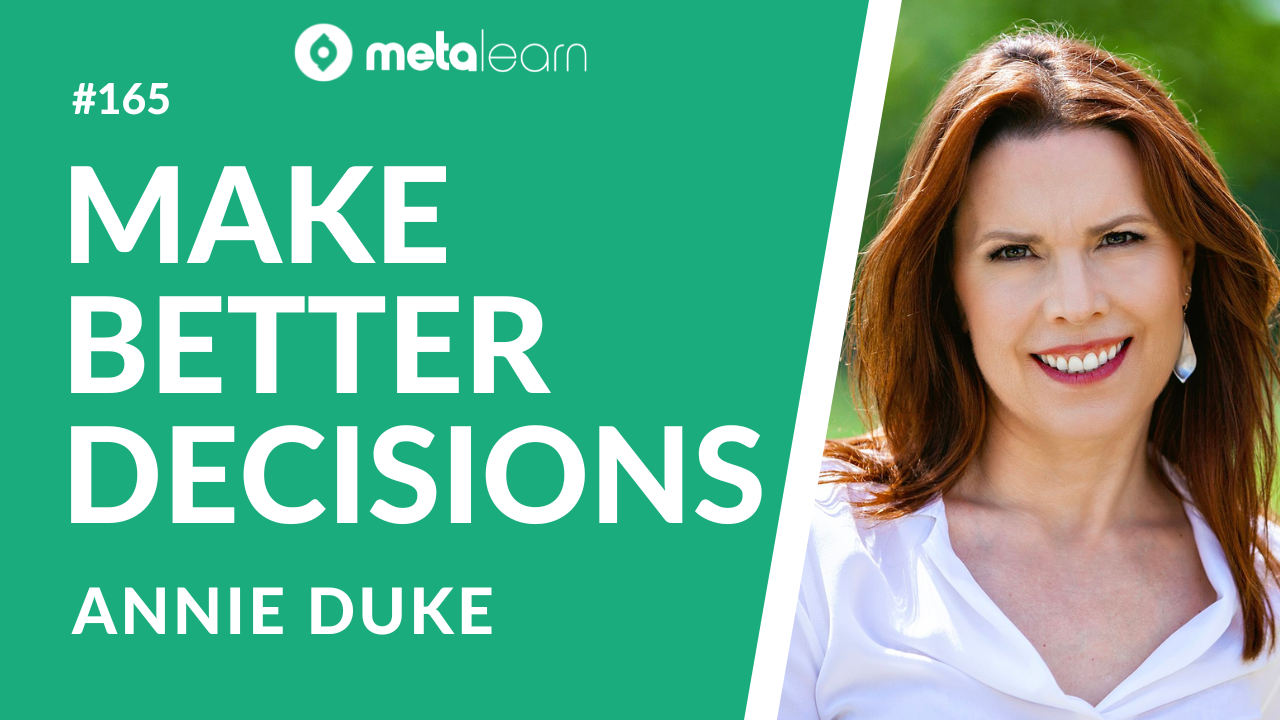ML165: Annie Duke on Learning from Experience, Overcoming Analysis Paralysis and How To Make Better Decisions
Discover what games like poker and chess can teach us about decision making, how to learn effectively from your experiences, and how to overcome analysis paralysis and eliminate unnecessary decisions.

Annie Duke is an author, speaker, and decision-making consultant. Her latest book, How to Decide is already earning rave reviews and her previous one, Thinking in Bets, became a national bestseller.
As a former professional poker player, Annie won more than $4 million in tournament poker before retiring from the game in 2012. Prior to this she was awarded a National Science Foundation Fellowship to study Cognitive Psychology at the University of Pennsylvania.
If you're anything like most people, you probably don't have much of a process for making decisions – from pro and con lists to getting caught in analysis paralysis, decision making can be incredibly painful.
But what if there was a better way to make quality decisions so you could think clearly, feel more confident, second-guess yourself less, and ultimately be more decisive and be more productive?
What if decision making was a learnable skill? Annie has dedicated herself to teaching it through her books and consulting
In this episode we discuss:
- What games like poker, chess and backgammon can teach us about decision making
- How to learn effectively from your experiences without becoming biased by outcomes
- How to overcome analysis paralysis and eliminate unnecessary decisions
This was a great wide ranging conversation with a lot of practical applications that will help you combat your own biases, address your weaknesses and become a better and more confident decision-maker.
Show Notes
- Introducing Annie Duke [00:36]
- When did Annie first realise that she was good at something and what was she like at school? [02:52]
- How does linguistics overlap with mathematics? [05:17]
- What can games like chess, backgammon, and poker teach us about decision-making, probability and luck? [08:18]
- How does chess differ from poker in terms of strategy and the level of difficulty? [12:20]
- What is the paradox of experience? Why is it more difficult to learn from experiences with good outcomes versus those with bad outcomes? [15:22]
- What is a decision tree and how does it help us with decision-making? [19:28]
- How can focusing on probability hinder the learning process [21:27]
- What are the two reasons resulting happens? [25:00]
- How does the feeling of inevitability further establish the concept of resulting? [27:10]
- Why does exploring our preferences improve our chances of success? [29:32]
- How maximising the probability of failure can lead to a more satisfying payoff [31:15]
- How does our need for validation limit the way we act on our preferences? [33:16]
- How can you automate inconsequential decisions in your life? Which decisions does Annie have on autopilot? [35:46]
- How assessing the long-term impacts of a decision can help you become better at decision-making [36:46]
- How has Annie’s teaching evolved with her studies in decision-making? [42:17]
- Closing remarks [47:02]
Resources
Follow Annie online
Website | Newsletter | Twitter

